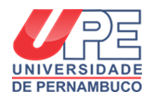The Graduate Program in Applied Cellular and Molecular Biology at the University of Pernambuco (UPE) has been based at the Institute of Biological Sciences (ICB) since its inception in 2007. It began with the master's degree program, achieving a CAPES rating of 3 out of what.
The program is structured around three research lines:
- Structural and Functional Cell Biology
- Basic and Applied Molecular Biology
- Biotechnological Processes and Products
After significant improvements in the indicators evaluated each three years, the program achieved a CAPES rating of 4. Based on this progress, the APCNwas submitted and approved for the opening of the doctoral program, which began in August 2015.
Currently, the PPGBCMA offers a total of 24 courses for the master's degree and 24 for the doctoral degree, including required and elective courses. The course length is 24 months for the master's degree and 48 months for the doctorate, with academic activities organized on a semester basis.


